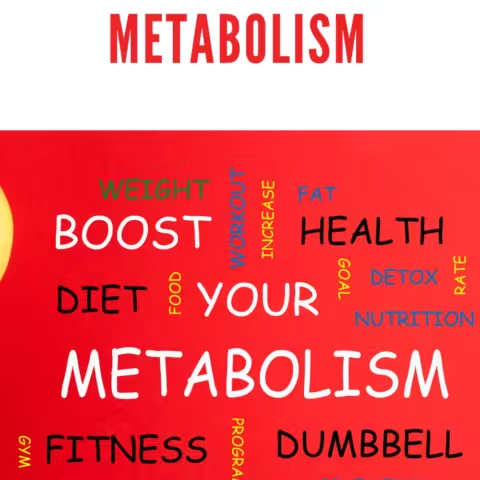Metabolism is a physical and chemical process occurring naturally in the body to sustain life.
To give you a better view of its relationship with weight gain, you should be able to understand these two important aspects of metabolism: metabolic rate and the factors affecting metabolism.
Metabolism is the rate at which your body is capable of using energy as well as burning your calories.
Metabolism functions the same way in every individual.
However, the rate at which the nutrients are metabolized varies per person.
Here are the two aspects of metabolism to help you in fully understanding its connection with weight gain:

Metabolic Rate
BMR or basal metabolic rate is the given rate at which the body is able to burn the calories while it is at rest.
To get your BMR, you multiply your current weight by ten (10).
If your weight is 150 pounds, then you have a BMR of 1,500.
Meaning to say your metabolism can exhaust about 1,500 calories per day.
Taking more than 1,500 calories a day would result in weight gain.
Although this is just an approximation.
Regular exercise speeds up metabolism, making it a good way of impeding weight gain.
Those who have a high metabolic rate have the ability to burn more calories compared to someone who has a slow metabolic rate.
Even if two individuals take in more or less the same amount of calories, the one with the higher metabolic rate will surely burn fast and more calories from the food intake.
The one whose metabolism is slower, will eventually not burn all the calories.
Instead, the excess calories would be converted into fats, increasing body weight.
Factors Affecting Metabolism
There are a number of factors affecting the metabolism process in your body.
Generally, they also affect every person’s needs in terms of calorie intake.
Below are the following factors contributing to metabolism:
genetics –
some people are simply born with a body that is capable of burning more calories.
age –
those above 40 will notice a decrease in their metabolic rate by 5% every ten years.
This is primarily due to a certain degree of change in the hormonal balance.
gender –
it is observed that men have higher metabolism compared to women.
height –
shorter individuals are most likely to have slower metabolic rates than taller individuals.
body composition –
individuals with more muscles and more body weight tend to have higher metabolic rates than those with thinner built.
activity –
the more you move, the better it is for your metabolism.
Engaging in exercise activities will promote an increase in metabolism.
It is a never-ending thrust for body-conscious individuals, especially women, to lose weight and eliminate body fat.
Engaging in various weight loss programs can be burdensome and costly.
If you’ve gone through numerous programs and diets with no success, Gastric Sleeve Newcastle advises seeking professional advice on alternatives like gastric sleeve surgery that can not only help lose weight but maintain it over the long term.
However, other methods tear down the traditional way, such as the fat burning furnace diet.

How Does Metabolism Affect Weight Gain?
According to Harvard Health, “A slow metabolism burns fewer calories, which means more get stored as fat in the body; that’s why some people have difficulty losing weight by just cutting calories. A fast metabolism burns calories at a quicker rate, which explains why some people can eat a lot and not gain extra pounds.”
What determines metabolism?

What are the three types of metabolism?
There are three basic metabolism types:
- ectomorph
- mesomorph
- endomorph
What is a metabolism example?
Disclosure: I received no monetary compensation for this post.
